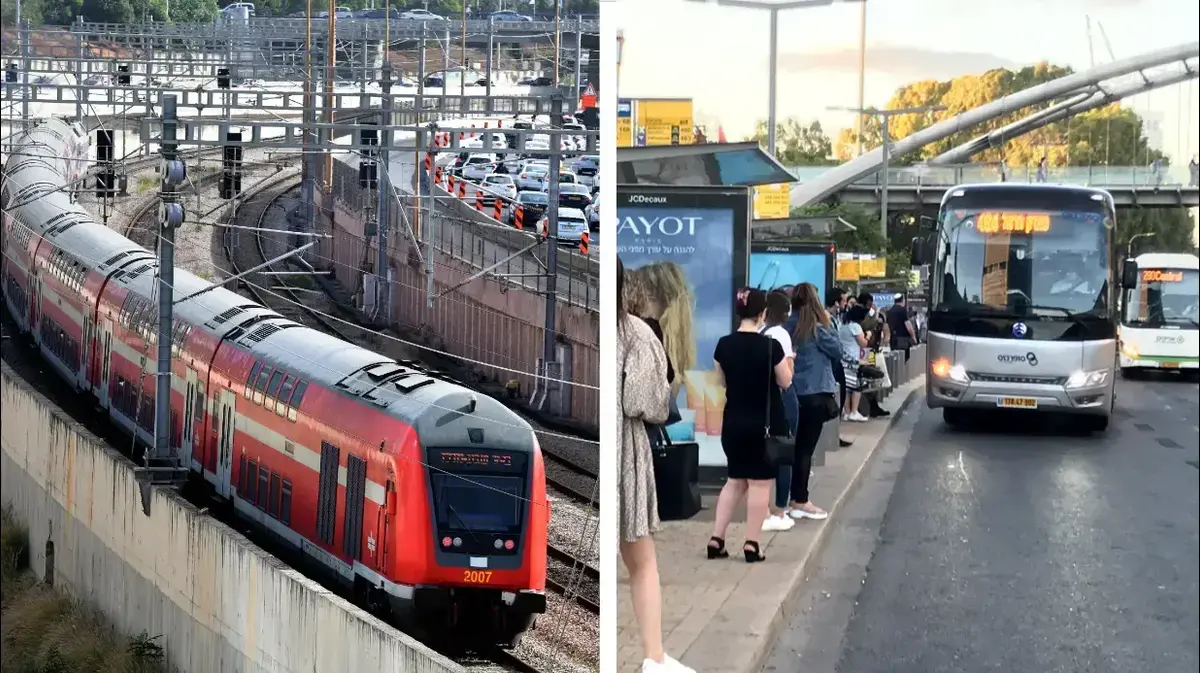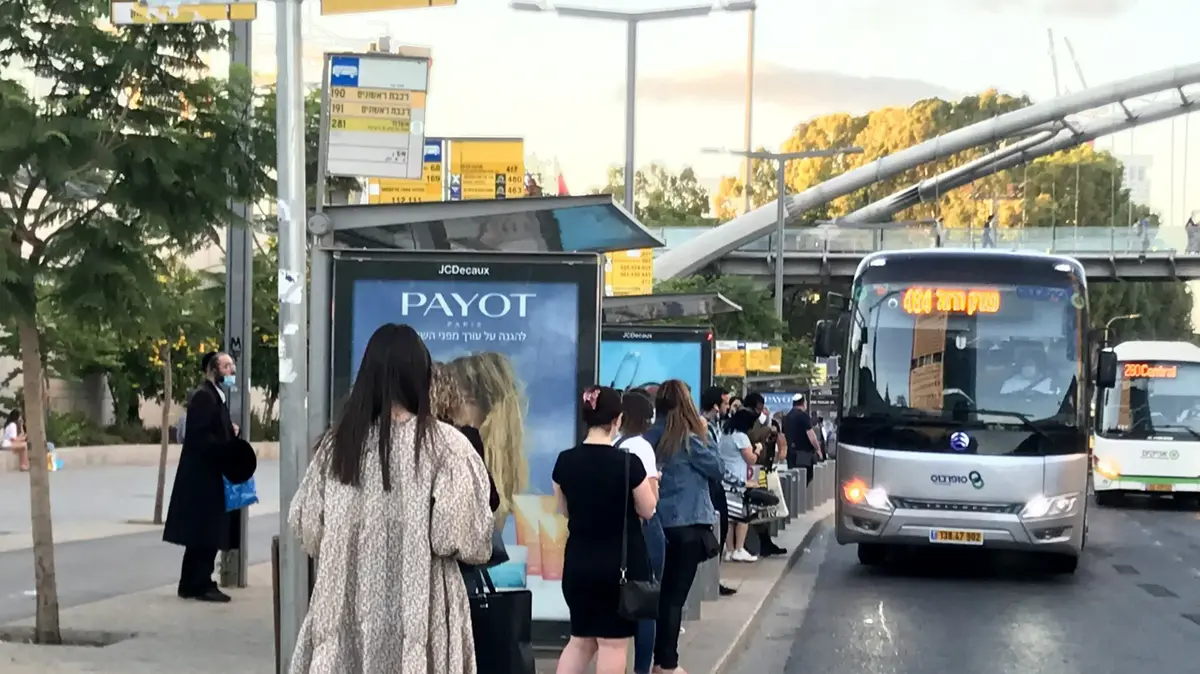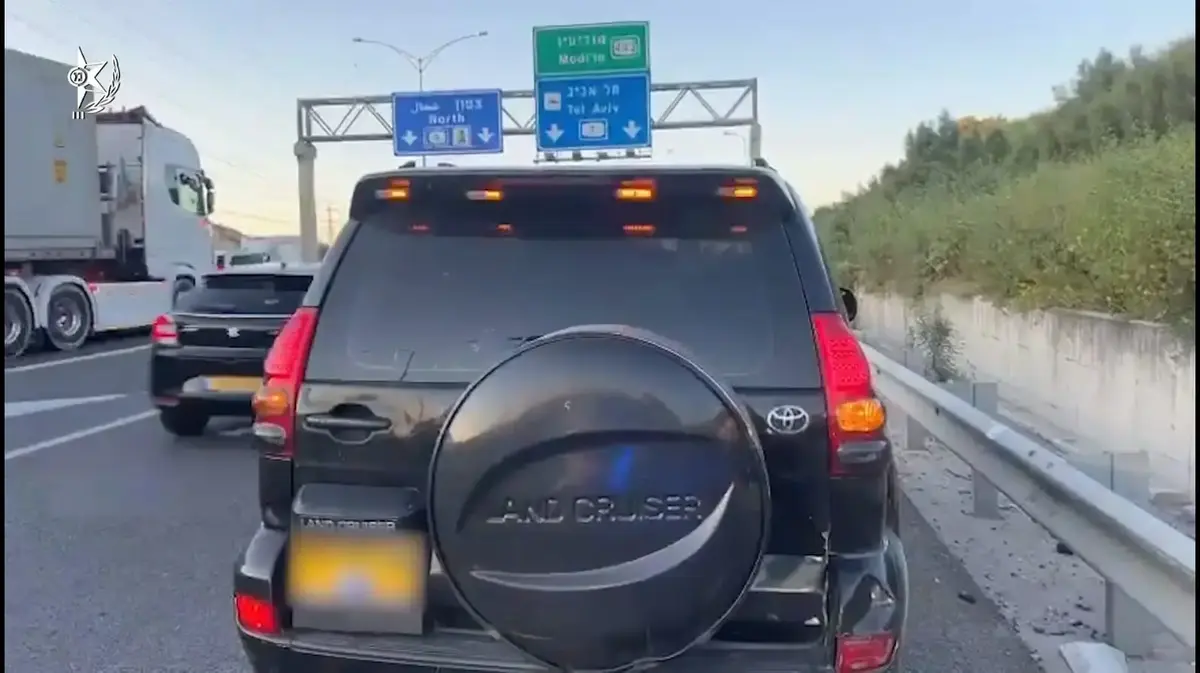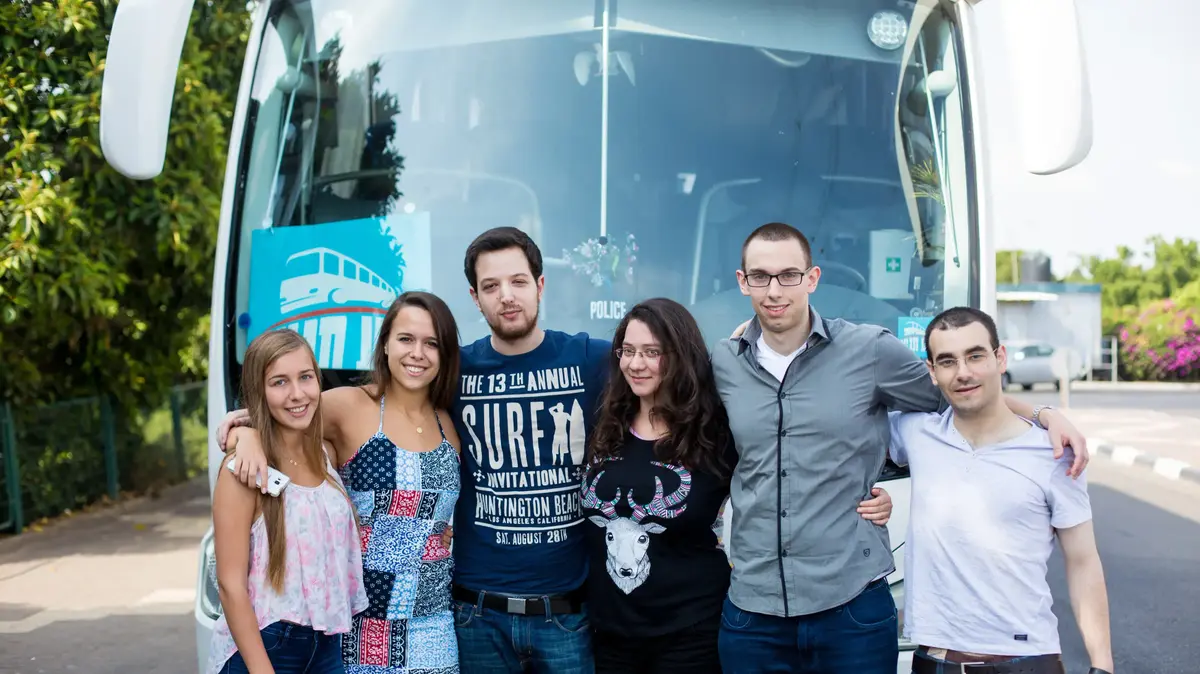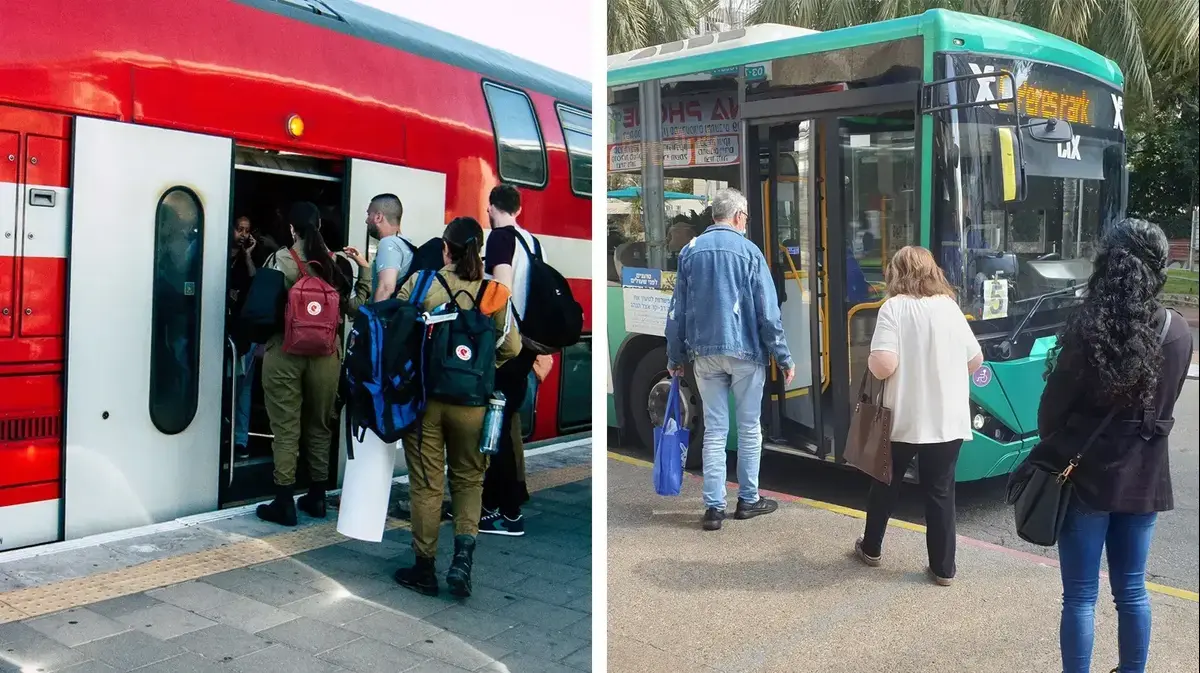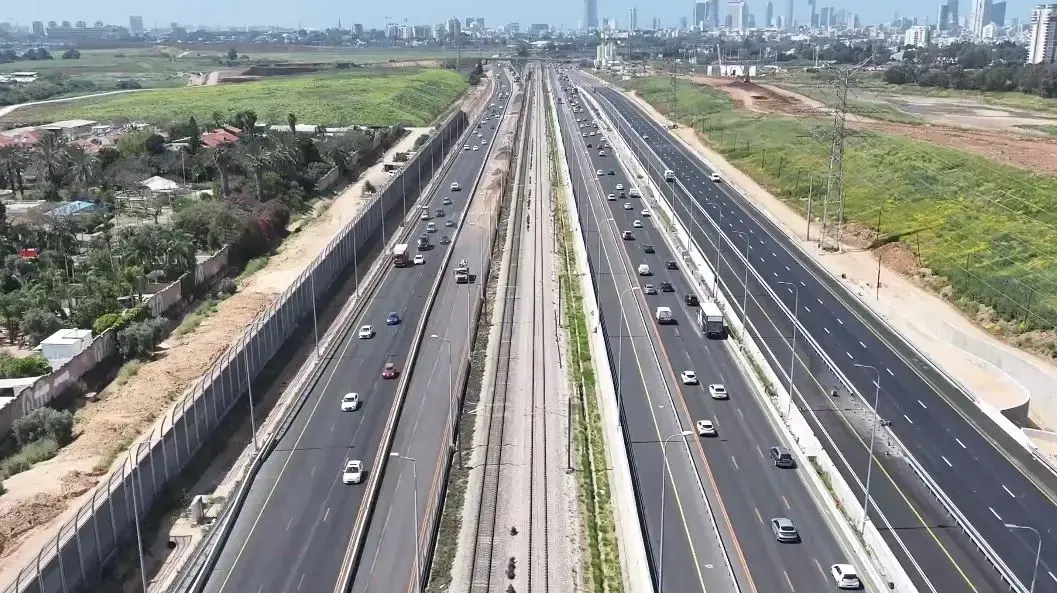Fixing the country, chapter 1: why public transportation in Israel is completely screwed up
Slow, late, non-prioritized buses, crooked taxation, too cheap parking, neglect of the public space and making it intolerable for walking.
There is no escape, we live in a traffic nightmare
Kenan Cohen
07/28/2022
Thursday, July 28, 2022, 09:20 Updated: 09:41
Share on Facebook
Share on WhatsApp
Share on Twitter
Share by email
Share in general
Comments
Comments
Slow, imprecise, uncomfortable (photo: photo processing, Reuven Castro, Avshalom Sashoni, Maariv)
Let's start from the end, whoever thinks that public transportation will ever be an amazing transportation paradise that will be a direct and equivalent alternative to traveling by private car - forget it.
Public transportation, like public services, is not something available everywhere, not as comfortable, clean, private or efficient as the ones you have at home.
The bad news?
If there is no change, the reality that traveling from Tel Aviv to Kfar Saba in the afternoon takes exactly the same amount of time as it takes to get from Bivaniel to Kfar Saba - is something you will still miss.
And it should also be said honestly - so that no one deceives themselves - the traffic jams you see around you will not disappear anywhere in the coming years, even after the light rail, even after the metro.
In cities and countries with much more developed public transportation than ours - the owners of private cars also stand for hours in traffic jams and pay dearly for it.
What efficient, fast, synchronized and accurate public transportation is supposed to do is offer us the alternative, give us the option to leave the car at home, give up one car or none at all, with a minimal compromise on the quality of life.
Internalize, this is how your life will look - forever (Photo: Reuven Castro)
In order to understand what the problem is with public transportation in Israel, as with everything, we need to understand who benefits and who loses from inefficient public transportation.
That is, who has an interest in improving it and who suffers because it is not like that.
At the simplest level and in the short term, the state is the beneficiary - more people who own cars, for which they pay purchase taxes, spare parts, fuel, buy them tires, license fees, insurance, traffic reports and parking - let's face it, 40 billion shekels from private cars enter the state coffers every year.
Because even the most expensive car is quite an economical engine.
Who suffers from the bad public transport?
In the distorted Israeli reality, with the exception of a determined group of ideologues, those who travel by public transport (aside from the train) are those who do not have many other alternatives - that is, young people without a license, soldiers, citizens who are too old or those who do not drive, the weaker strata of the population in the lower quintile - in other words, these that no one counts, that no one uploads statuses with the correct tags,
good to know (in advance)
The people who managed to get rid of chronic pain reveal the solution
Served on behalf of B Cure Laser
A situation has arisen in which, with the exception of ideologues, those who can will be happy to move to a car (photo: Walla! system, Shlomi Gabai)
Public transportation in Israel is screwed up because in the mid-1990s we probably had the last chance to change the direction of history as far as transportation planning in Israel is concerned.
However, from there on the continuous, sharp and constant increase in the standard of living, the growth of the leasing bubble and the status symbol of the compact car, which in the next phase flooded the used market with mostly cheap cars, Israel's transition to the American model of suburban cities where they come to sleep and in these cities like Rishon Lezion, Modi'in, Nes Ziona, Rehovot, Ra'anana, Kfar Saba and others have entire neighborhoods of scattered construction, attached to the ground or with two and three stories, which spreads neighborhoods over large spaces without any thought of what will be here in 15-20 years, neighborhoods of sizes that make efficient public transportation difficult Their proximity on the one hand and do not allow a size small enough to be handled by bicycle, for example.
There is an urban planning culture that places huge shopping centers outside the cities, these bring in a lot of money from property taxes for commerce,
We paved more and more lanes and only made the situation worse (Photo: Reuven Castro)
Public transportation in Israel is also screwed up due to the design concept of the roads, where for decades someone thought that if we simply added more and more lanes our traffic jam would disappear.
Well, the world realized that this was stupid nonsense already in the early 1970s.
In Israel, the bulldozers worked non-stop until a few years ago.
But the simple fact is that as more lanes are paved the result is more traffic jams, much more traffic jams.
The term "delayed demand" or "induced demand" may not mean much to you, but the general idea is this: there is a demand for fast, smooth and independent travel on the road, what moderates it ("delays" or "induces" the demand) is the capacity limit of the road .
However, as soon as it can accommodate more cars, this demand is no longer induced, but goes out onto the road - where it joins thousands and tens of thousands of induced demand owners and here you have a traffic jam as bad as the one before, if not worse.
In addition, at the end of every traffic jam there is a desired destination, usually a city, meaning that sometime somewhere,
This 3-4 lane road will have to narrow, slow down, go through intersections.
In other words, no matter how many lanes you have, there will eventually be a bottleneck that will create more traffic jams.
A bus cannot and should not stand in traffic with regular cars (Photo: Reuven Castro)
Public transportation in Israel is screwed up because it has been privatized to private franchisees in a way that allows the state to remove hands or responsibility.
And the concessionaires, on the one hand, need to make public service profitable, at least at the level of the stations and the area - they do it at the expense of passenger service.
This will sometimes come in the form of reducing lines, or trying to use each line to pass through as many stations as possible, which turns a simple 10-15 minute trip from the center of Rishon Lezion or from the Moshe Dayan train station to the Sorek industrial area into a crazy trip of about an hour between the neighborhoods.
That is, an elementary line between a train and an employment center simply does not exist.
And all this provided you managed to get on the bus.
Meaning that he arrived at the station at the appointed time and was not late by 5, 10, 25 or 40 minutes, a delay that, if this bus is the first link in your journey, knocked the rest of the steps along the way and disrupted you completely.
Sometimes the bus simply won't arrive, will skip the station, won't stop due to the fact that Mercury is in retrograde or any other excuse.
Fines for activity?
An explanation of an alternative?
We have not heard of such a thing.
Then you have to wait for the next line, and sometimes, if it's not too hot, not too humid, not too cold, not too rainy or too unrealistic, you'll do it in a shaded station protected from the rain.
The rest of the time you will sweat in the hot sun, get wet from the rain, huddle with the other passengers on that small square of shade and maybe even debate whether to move to the other side of the station to seek some shade - but risk the driver seeing an empty station and simply skipping it.
And there is also the travel experience itself, but here it is difficult to come to the country with complaints about people's low hygiene, a tendency to talk loudly, listen to music on the speaker or just have strange people staring at you.
But it's there, just saying.
The bus drivers are not compensated enough in relation to the working conditions (photo: Walla! system, security cameras)
Public transportation in Israel is screwed up because until recently, very recently, in the last budget passed here, this entire system was not properly budgeted.
And it is true, in recent years a NIS 250 billion budgeting plan was launched for the development of public transportation over the next 25 years, and it is a budget that will indeed put Israel shoulder to shoulder with the more advanced countries in the OECD, with only one difference - our starting point is not the same, Israel lags behind the countries These significantly.
Take for example the allocation of public transportation lanes, a lane that is exclusively for public transportation (and ideally also for two-wheeled vehicles) and gives it the priority it deserves over private cars on the streets and roads.
Well, the State of Israel lags in this aspect behind leading countries and cities, when in Tel Aviv the figure stands at a little more than 100 meters of public transportation routes per resident, in Jerusalem there are close to 100 and that's more or less, the Haifa metropolis presents priority routes that serve the metro and the underground city.
Compared to 450 meters per inhabitant in a city like Zurich, 350 meters in Oslo, the gap is very clear.
The lack of investment and operation by private companies is also expressed in relation to those who sit and drive this entire system - the drivers.
Those who work in very difficult conditions, driving a monster about 13 meters long or 18 in the case of an articulated bus (accordion), about 2.5 meters wide in traffic jams, on winding roads, on city streets, in the heat, in the rain, sometimes exposed to improper behavior of passengers up to to violent attack.
And all this with poor employment conditions, with an inappropriate salary that in order to reach five figures requires stretching the allowed working hours to the limit and even beyond you.
The state does not recognize him as a professional, the public transportation franchises transfer them from one to the other as if they were contractor employees and in the process reset their accumulated seniority and we have not even talked about the lack of breaks, refreshment stations, etc.
By the way, not only the drivers are captives, but also the passengers themselves.
When I need to get from my place of residence to Tel Aviv, I cannot choose the best and preferred public transportation provider, as in the case of coffee, a cell phone or breakfast cereal - I will take the line that goes from point X to Y.
That is, the passengers are captive customers of the public transportation operator in their area.
Shopping centers that sanctify the private car (Photo: Reuven Castro)
Public transportation in Israel is screwed up because for too many years no one raised a clear voice and told the decision makers - we are not transparent.
And maybe we had to reach the catastrophe of the road system collapsing under the load in order to start the change.
It is a change that must come mainly from below.
It needs to grow from below by the next generation of those who are supposed to be drivers (the current one is already lost), those who see this situation and will say - with all due respect to the statement whether or not we will sit down with the joint list, for discussions on the permanent settlement with the Palestinians, kosher reform, chametz On Passover or indictments - we will not waste years and health standing in traffic jams in our car with our fuel while you play politics sitting comfortably in the cars you received from the Knesset.
About how we can and should improve our public transportation, step by step and how you can demand it - in the following chapters.
vehicle
car news
Tags
Public Transport
bus
buses
Traffic jams
traffic jams
transportation

